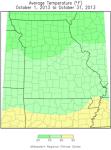COLUMBIA, Mo. – Young rural Missourians between the ages of 11-18 are starting after-school programs, constructing community gardens, leading community drives to combat poverty and addressing hunger in their schools, all as part of a University of Missouri Extension 4-H program designed to grow new leaders in towns with fewer than 10,000 people.
“The issues the youth have decided to take on and the strategies they are using to impact those issues are their own,” said Steve Henness, project coordinator. The Engaging Youth, Serving Community (EYSC) program, which is funded by the U.S. Department of Agriculture through the National 4-H Council, gives youth ownership in planning and implementing civic engagement projects with the help of community leaders and adult volunteers over a period of two to five years.
“The amount of grant funding is small, but how rural communities are able to multiply resources through monetary, in-kind, and volunteer contributions is impressive,” says Henness.
Each community receives just $2,000 per year in USDA grant funding, but the return on investment after two years has averaged $14.45 for every dollar in federal funds received, Henness said.
“With the program receiving third-year funding to continue in 2012, the best is yet to come,” he said. The projects remain focused on the same community issue, adding a new element each year.
For the community of Greenfield, 4-H youth are partnering with the Dade County Health Department, Greenfield Fire Department, FFA, churches and other local organizations to build community garden beds for families to grow their own food. The team started a school backpacks program reaching 80 elementary students last year and, with the support of Master Gardener volunteers, will add an elementary school greenhouse project this year. The issue the youth are working to combat in the community is hunger, especially among children. Because of her leadership and involvement with the project, Sarah Heverns, Greenfield High School student, was chosen as the first teen to serve on the Dade County Extension Council.
Youth from Alton and Thayer have conducted community forums and launched a “Youth Teaching Youth” after-school program. Last year, the pilot program engaged 35 K-6 students in tutoring/mentoring sessions after school. This year, the teen mentors will introduce the students to tablet computers and robotics kits as part of their strategy to boost technology skills and support academic achievement. School officials have granted the teens A+ Schools Program hours for their mentoring of elementary students in the after-school program the teens started.
In Lamar, 4-H youth presented a portfolio of their service project results to volunteer judges of the Missouri Community Betterment (MCB) program. Last year, the teens organized community food drives and benefits with proceeds reaching more than 200 low-income families. The group chose to focus efforts on children, the elderly and people with disabilities—groups in the community who tend to be the most vulnerable to poverty. Team members attended the MCB conference last October, where Lynzee Flores, Lamar High School student, received a Youth Leadership Award. While at the conference, the community of Lamar also received first place for youth involvement in its population category.
Project leaders are helping youth from each of the communities to map their impacts and document the changes their sustained activities are having over time. The goal in each case is to show how the youth-led strategies and action plans are leading to positive results for communities.
“It’s exciting and empowering,” Henness said. “Youth are realizing they can be catalysts for positive change on issues like hunger, poverty and lack of after-school opportunities in their communities. They are showing us what the national 4-H study has found—that 4-H youth are three times more likely to actively contribute to their communities when compared with youth who do not participate in 4-H.”
Engaging Youth, Serving Community (EYSC) is funded by the National 4-H Council and the USDA National Institute of Food and Agriculture’s Rural Youth Development grants program, and supported by University of Missouri Extension.
4-H is a community of more than 315,000 youth ages 5-18 from rural farming communities, suburban schoolyards and urban neighborhoods all over Missouri. 4-H members learn leadership, citizenship and life skills under the guidance of more than 10,000 caring adult volunteers across the Show-Me State. University of Missouri Extension 4-H is the youth development program of the state’s cooperative extension system.
Read more http://extension.missouri.edu/news/DisplayStory.aspx?N=1382






